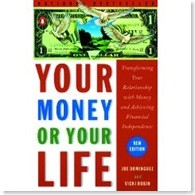Make Money Online - Roadmap of A Dot Com Mogul
/
Make Money Online – A Dawn Journal Book Review
First Published Date : August 28, 2010 ADawnJournal.com
Prelude
I received a signed copy of this book in the mail from John Chow sometime in May. However, it took me a while to finish reading it due to living a part-time dot com lifestyle on the weekend only along with a full-time 9-5 lifestyle. Today, I am writing this review on my new Acer 13.3 Aspire Timeline laptop in a Tim Horton at Danforth Ave. and Birchmount Rd. in Toronto, Canada.
What Is This Book About?
This is John Chow’s first book to give readers his lifetime insight on how to make money online in simple, plain English. This book is somewhat targeted to those who are novices in the world of online money making and entrepreneurship.
Dad’s Review of Make Money Online in Two Sentences
My dad, who is close to 80, is just learning how to use the Internet and opened his first email account last week. He finished reading Make Money Online within days of receiving it and gave me his super-short review in two sentences:
· John talks very honest and candidly without holding anything back in this book.
· Content is very important.
Do you think anyone else can do a better review than this?
Critical Characteristic You Need to Succeed: Passion
In the first 20 pages, John talks about how he got into blogging, the dot com crash of 2001, how Google rescued Internet entrepreneurship, and so on. Then, he talks about three critical elements you should have even before you start your online venture. These three essential elements are: Being passionate on your subject, having your own domain name, and keep updating often. Passion is the most important element which comes before anything else. The reason is, regardless of how serious you are on everything else, if you are not in love with your subject, you will give up one day.
Essential Blogging Tips
John provides ten essential blogging tips in chapter four. If you are willing to achieve online success, you should embrace and follow these time-tested tips vigorously. I am going to mention here the first five tips only:
Be Personal
· Write for readers, not for the search engines
· Know your readers
· Never rush your posts
· Go with the flow
Content Is King
One full chapter is dedicated to content. In this chapter, you will find what is considered quality content and what is not. If you are reading this book review at this very moment, you are reading it because of its content, not for anything else. The whole world is looking for information online, i.e. content, and this hunger for content will only grow in the future. Follow John’s tips on content and you will be able to turn your no-traffic website into a high-traffic website, no doubt.
Some Important Highlights from Make Money Online
Here are some important highlights I must mention before giving you my conclusion:
– Blog on something you are passionate about. If you just blog for money (not being passionate on the subject), you will fail.
– Never stop learning. Be willing to take risks and try new things.
– Do not wait for things to happen someday. You need to have goals and a plan of action with timelines to realize your goals. Dreamers will always keep dreaming and will never realize their dreams because they do not have any solid action plans with a timeline.
– You need to be different to be successful. Readers have options to read other content on the same subject. Why would they read your content if you are not different and unique?
– Branding is very important. Strong branding already gives you a boost to become different, now concentrate on generating unique content.
What I Don’t Like
Considering that Make Money Online a book to help novice Internet entrepreneurs to make money online, its simple, easy-to-follow teachings and techniques flow throughout the book smoothly – except in chapter five – WordPress basics and chapter six – WordPress techniques and tools, where I got the feeling that it’s getting a little techi for regular readers and you need to have technical literacy to comprehend some of the stuff discussed.
What I Like
It’s simple and plain language and John’s candid-conversation-style writing. Readers will have this feeling (just after reading first few pages and as my dad mentioned) that everything that said here is coming from a person of authority on online money making and he is not withholding any information. His sole purpose of this book is to shed some light on the world of online money making and help those who are willing to give it a try.
My Take
If you are a regular A Dawn Journal reader, you know that I go by three simple and straightforward ratings for my book review: A Must Read, Worth Reading, and Do Not Read. For Make Money Online, I am assigning “A Must Read.” Even if you are not looking into Internet Entrepreneurship, you should still read this book as it takes you inside the mind of a great entrepreneur who showed us how to succeed with determination, courage, and hard work in the face of severe uncertainty. It will inspire you in your daily living.













